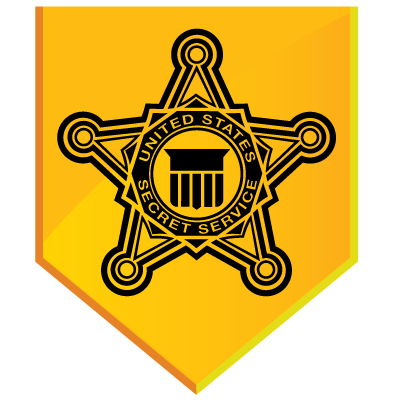Frequently Asked Questions: Administrative, Professional and Technical
To view and apply to our vacancies, please click here.
For instructions on how to apply online, please visit our applications procedures page. You may also call 888-813-8777 for a listing of our current vacancies.
The Office of Management and Budget (OPM) has mandated that agencies are responsible for evaluating and providing status to applicants at four points during the process which are:
- Application Received
- Application Assessed
- Applicant Referred or Not Referred to Selection Official
- Applicant Selected or Not Selected
Although each agency is different, generally, you will hear from the hiring agency about 15-30 days after the job opportunity announcement (JOA) closes. If you have not heard from the agency, contact the agency that posted the JOA to inquire about the status of your application. You may also go to "My Account" to view your application history on USAJobs. The contact information for each announcement is listed in the lower portion of the JOA and on the floating menu on the right hand side of the JOA.
The area of consideration describes the group of individuals from whom the agency will accept applications to compete for the position. It may be a broad or a limited group of individuals. The area of consideration may also be referred to as “Who May Apply” within the vacancy announcement. If you are not within the area of consideration and you are not eligible for a non-competitive or special hiring authority, the agency will not consider your application.
Under Executive Order 11935, only U.S. citizens and nationals may be appointed to competitive service federal jobs. In rare cases, agencies may hire certain non-citizens when there are no qualified U.S. citizens available, unless the appointment is prohibited by statute. In addition, Congress frequently restricts agencies’ ability to hire non-citizens into the excepted service as well, through appropriations provisions. For more information about citizenship requirements, please visit: USAJOBS.
Agencies develop their own procedures for interview practices. The decision to interview may depend on a variety of factors, including your ranking against other candidates, the number of positions being filled, and the number of people who applied.
All Secret Service positions require completion of a full background investigation before appointment. Applicants must pass an extensive pre-employment background investigation. Applicants must be able to obtain a Top Secret clearance.
The timeframe for completion of a background investigation varies depending on the history of the applicant. Typically, a full background investigation takes approximately six to nine months to complete. During this period, information is verified, including employment history, police records, credit history, school transcripts, neighborhood references and military records.
USAJOBS is the official job site of the United States federal government. This website, www.usajobs.gov, is the centralized site for most federal agencies to post vacancy announcements. At any given time, there are approximately 20,000 positions posted on the site. Additionally, many government agencies advertise in newspapers of general circulation, participate in job fairs, and recruit on college campuses.
These are groups of individuals the agency may identify those from whom it will accept applications to compete for its vacancy.
When a vacancy is open to “all sources”, it means anyone may apply. While there are no restrictions on the groups of candidates who may apply to these types of announcements, in most cases, U.S. citizenship is required. In rare cases, agencies may hire certain non-citizens when there are no qualified U.S. citizens available, unless the appointment is prohibited by statute. In addition, Congress frequently restricts agencies’ ability to hire non-citizens into the excepted service as well, through appropriations provisions.
“Status applicants” and “reinstatement eligible” refers to individuals who are current or former federal civilian employees who hold or held non-temporary appointments in the competitive service, not the excepted service.
Qualification Standards is a description of the minimum requirements necessary to perform work of a particular occupation successfully and safely. These minimum requirements may include specific job-related work experience, skills, education, medical or physical standards, training, security, and/or licensure. They are not designed to rank candidates, identify the best qualified for a particular position, or substitute for an analysis of an applicant's knowledge, skills, and abilities/competencies.
Job announcements will indicate the types of documents needed in the “How to Apply” section. The documents required may include: school transcripts, resume, certifications/licenses, SF50’s, DD214, SF15, and/or Veteran’s Administration disability letter.
Federal jobs often require that you have experience in a particular type of work for a certain period of time. You must show how your skills and experiences meet the qualifications and requirements listed in the job announcement to be considered for the job.
Include dates, hours, level of experience and examples for each work experience. For each work experience listed, include:
- Start and end dates (including the month and year).
- The number of hours you worked per week.
- The level and amount of experience. For instance, stating whether you served as a project manager or a team member illustrates your level of experience.
- Examples of relevant experiences and accomplishments that prove you can perform the tasks at the level required for the job as stated in the job announcement. Your experience needs to address every required qualification.
If hired for a federal job, you must go through a basic background check to make sure you’re reliable, trustworthy, and suitable for the job. The background check process starts after you accept a job offer.
The U.S. Secret Service will ask you for the necessary personal information to start the background investigation process. The amount of information you’ll need to give depends on the job.
Regardless of the type of background check, you will need to answer questions about where you’ve lived, worked, went to school, and any military history or police records. You’ll also need to be fingerprinted if you’ve never worked for the federal government.
Some jobs require a security clearance. The security clearance level depends on the type of access to classified information and secure facilities that you’ll need to perform your job.
For jobs that require a security clearance, you’ll need to provide at least 10 years of personal information and possibly more. You’ll need to complete the Standard Form 86 (SF86).
Schedule A is a special appointment authority used by many federal agencies under Title 5 of the US Code and can be used to non-competitively appoint individuals, including eligible Veterans, who have a severe physical, psychiatric, or intellectual disability. The Secret Service is fully committed to hiring persons with disabilities. The required Schedule A letter needs to be submitted upon application.
In general, Veterans' Preference eligibility is based on dates of active duty service, receipt of a campaign badge, Purple Heart, or a service-connected disability. Only veterans discharged or released from active duty in the armed forces under honorable conditions (honorable or general discharge) are eligible for Veterans' Preference. If you are not sure of your preference eligibility, visit Feds Hire Vets.


